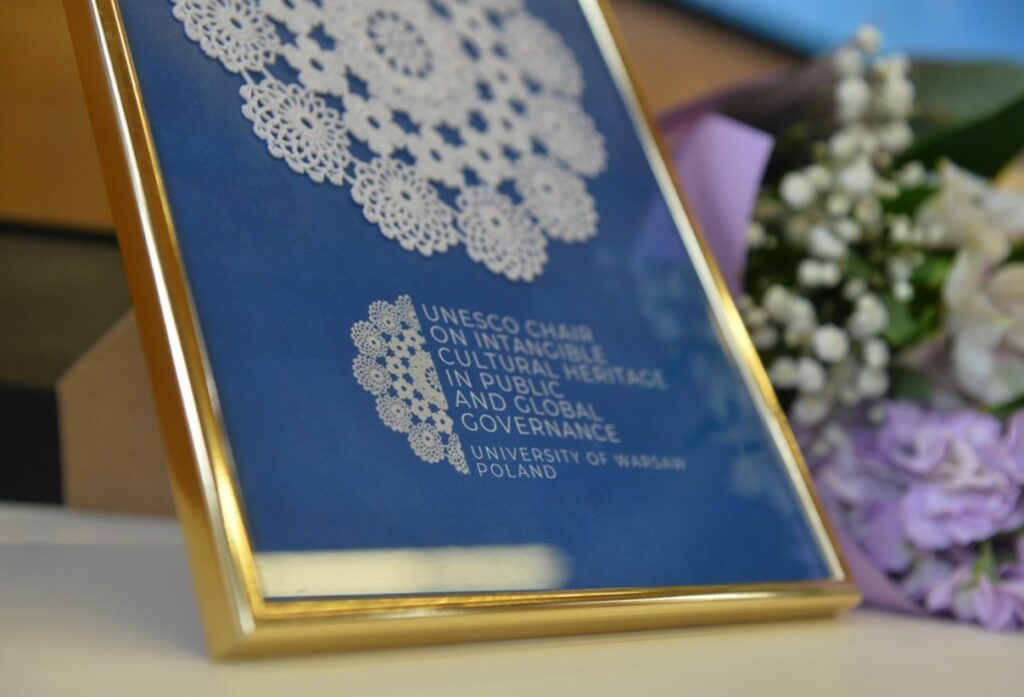
The new UNESCO Chair is based at the Faculty of Political Science and International Studies (WNPiSM) at the University of Warsaw and deals with public and global processes of managing intangible cultural heritage.
There are ten UNESCO Chairs in Poland, including three at the University of Warsaw. In addition to the one established at the CISM, there is the UNESCO Chair for Sustainable Development at the Centre for European Regional and Local Studies (EUROREG) and the UNESCO Chair for Women, Society and Development at the Robert Zajonc Institute for Social Studies.
Dr Hanna Schreiber, who heads the unit, noted that the chair’s interdisciplinary team will seek answers to questions such as how a community – including the international community – should manage heritage resources, when intangible heritage resources are considered a public good and when they are considered a common good, or what are the criteria for effective and ethical heritage management. The challenges of public and global governance of intangible cultural heritage will be explored in the context of the MONDIACULT 2022 Declaration, Agenda 2030, UNESCO’s Medium Term Strategy 2022-2029 and the UNESCO Ethics in Artificial Intelligence recommendation.









